Share this @internewscast.com
Getting adequate nutrition and doing the right exercises for your body is important at any age and stage of life, but this grows increasingly more critical as you get older. Consuming proper nutrients and including a solid balance of strength and cardio into your routine, for instance, is key as your body experiences changes. We’re here to make staying healthy in your 40s and beyond seamless with the best exercise and nutrition tips for women, straight from the experts, Amy Goodson, MS, RD, CSSD, LD, a registered dietitian and certified specialist in sports dietetics who sits on our Medical Expert Board, and Tyler Read, the founder of PTPioneer.com a personal trainer who’s been involved in the health and fitness world for the past 15 years.
Keep reading to learn what Goodson and Read have to say about the best exercise and nutrition tips for women in their 40s. And when you’re done, don’t miss these 5 Things Women in their 40s Should Do for Better Hormonal Health.
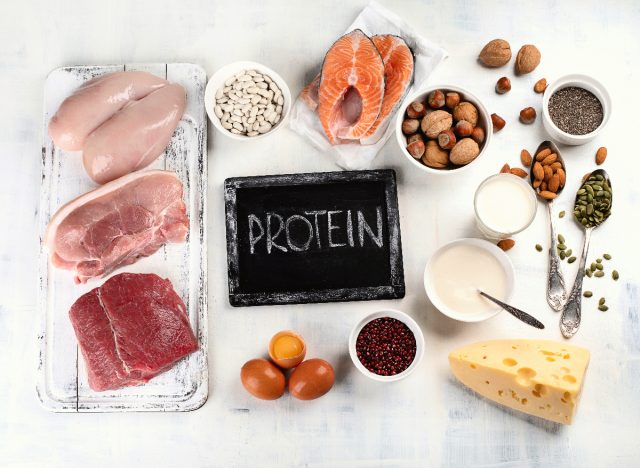

Feeding your body sufficient protein is necessary in order to preserve bone mineral density, muscle mass, and vitality. Aim to consume 25 to 30 grams of high-quality protein in all of your meals, in addition to incorporating protein into your snacks, Goodson explains.
“Protein slows down digestion, which means it gets you full faster and keeps you full longer after eating,” she points out. “This can help with portion control and managing blood sugar. Research suggests that women who consume 25 to 30 grams of protein at breakfast are satisfied with less food later in the day.”
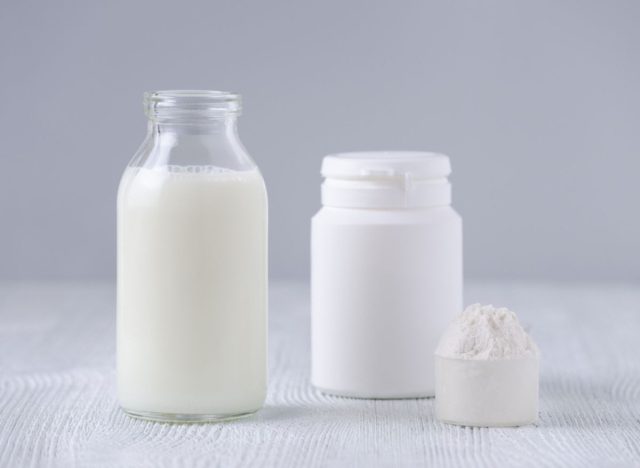

“Calcium and vitamin D work in concert together to maintain bone mineral density as we age, helping to reduce the risk of osteopenia and osteoporosis,” Goodson tells us. Dairy foods such as yogurt, cheese, and milk, are the absolute best calcium sources you can have in your diet. Aim for three servings of dairy each day. If you don’t get this much dairy on a daily basis, Goodson suggests taking a calcium citrate and vitamin D supplement or opting for fortified soy milk.
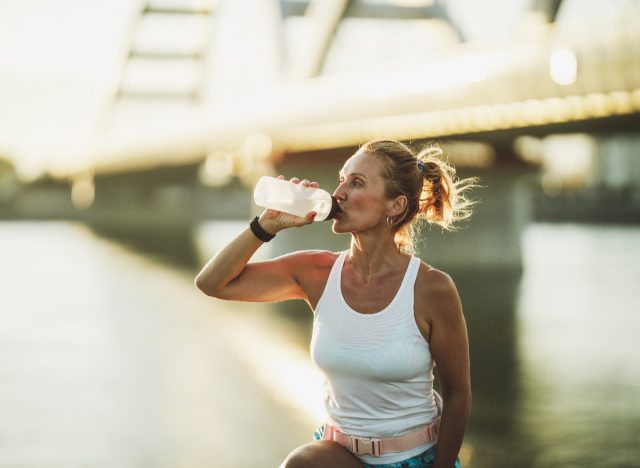

Staying hydrated is key for your overall wellness and ensuring your body functions to the best of its ability. Getting your daily fill of H2O also helps keep your skin healthy as you grow older.
“A general rule of thumb is to take your weight in pounds and divide it in half as your base level of fluid intake throughout the day,” Goodson says. “Then, add five to 10 ounces of fluid for every 20 minutes of exercise.”
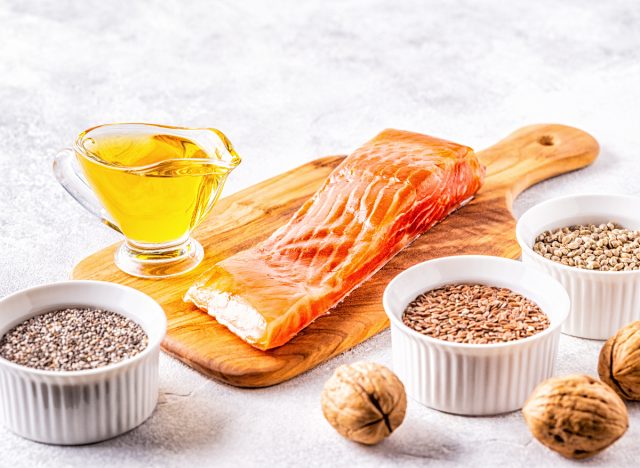

According to the American Heart Association, heart disease is “the number one killer of women,” killing one out of three women every year. You can lower your risk of developing cardiovascular disease by performing regular physical activity and eating a diet that’s high-fiber and high in omega-3 fatty acids. “Omega-3 fatty acids found in fatty fish, walnuts, seeds, and soy products are essential for a healthy heart. Omega-3s can help raise your good cholesterol (HDL) and lower triglycerides,” Goodson explains.
Read Related Also: Doctor shares three symptoms that could point to coeliac disease – 'Book a blood test'


Have you considered trying collagen? Your body’s production of collagen dwindles as you age, and collagen peptides provide your skin with elasticity. “They also play a role in joint, ligament, and tendon health,” Goodson points out. “As we age, it’s harder to recover from exercise, so you need to do what you can to boost recovery. Collagen can help keep your joints flexible, mobile, and strong.”
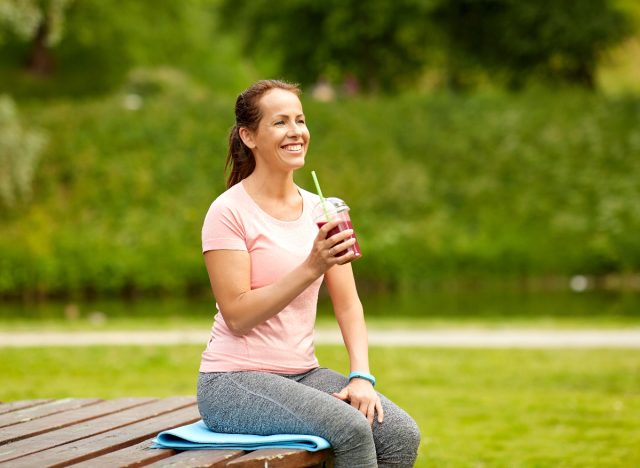

“Don’t skip meals,” Goodson stresses. “Eating smaller meals and snacks throughout the day, with as many food groups as possible, is necessary for proper nutrition and to help regulate your hunger levels and portion sizes.” Eating usually keeps your energy levels stable and helps you not eat as much during your next meal or when you snack.
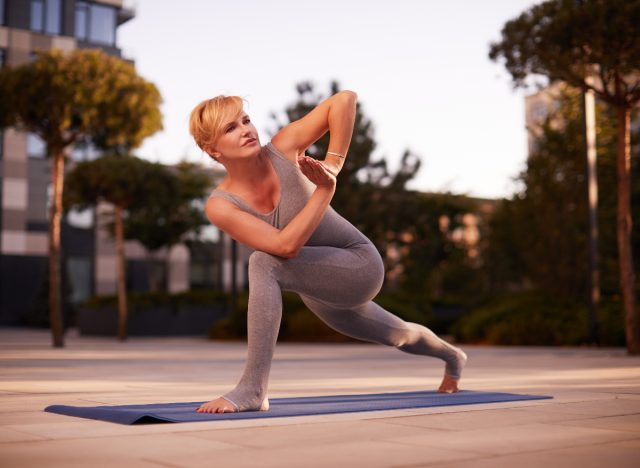

Consistency is king in anything you do, but most especially when it comes to diet and exercise. “The most important thing about an exercise routine is that it is sustainable,” Read tells us. “Pick activities that you enjoy so you’ll look forward to them, which will help you stick to your routine.”
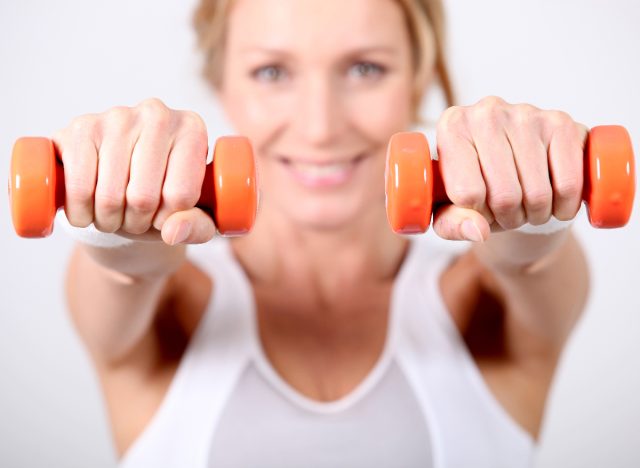

It’s a natural part of aging to lose muscle mass. But there are things you can do in order to build up and preserve it. For instance, incorporating strength exercises into your schedule at least twice a week can help you fight the decline. “This can include bodyweight exercises, resistance bands, or weights,” Read says. “Remember to target all your major muscle groups: legs, hips, back, abdomen, chest, shoulders, and arms.”
In addition, don’t sleep on cardio. Read suggests shooting for a minimum of 150 minutes of moderately intense aerobic exercise every week. This could mean cycling, swimming, walking briskly, or any other physical activity that gets your heart rate up.


Carving out sufficient rest and recovery time should not be overlooked. It’s necessary to listen to your body. “If you’re feeling sore or exhausted, give yourself permission to take a day off,” Read suggests. “Remember, it’s about overall lifestyle changes, not quick fixes. Also, be aware of your body’s needs and limitations. If a certain exercise causes discomfort or pain, modify it or try something different.”










